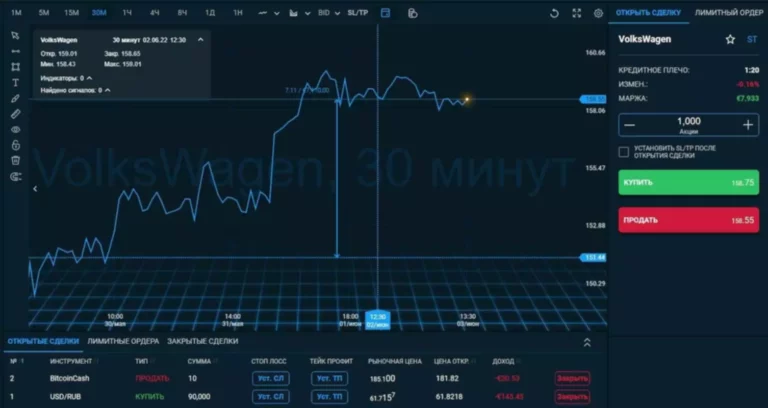Crypto Wallets vs Crypto Exchanges: How Are They Different?
Content
Some wallets, like those with integrated decentralized exchange (DEX) options, allow limited trading functionality but not to the extent of dedicated exchanges. Exchanges are equipped better but they are not as safe as wallets, as hackers always strive to hack exchanges and sometimes they succeed. More than that, sometimes exchanges use users’ funds without users’ consent or go bankrupt. Of course, like wallets, exchanges https://www.xcritical.com/ do care about the security of users’ funds and data and provide protection measures. The world of cryptocurrency is constantly evolving, with new projects and coins entering the crypto market every day.
Crypto Wallets vs. Crypto Exchanges: How Are They Different?
They come in various forms, from hardware devices to mobile apps, each offering unique features for safeguarding your crypto. 1 Understanding their differences is crucial for safe and effective crypto management. Instead, a crypto wallet is a software program Digital wallet that stores and secures files containing your private keys. For context, it’s good to know what is cryptocurrency and understand how blockchain technology works. But essentially, each cryptocurrency transaction involves a public key and one or more private keys that “sign” off on the exchange. Your private keys are mathematical proof that you—or whoever controls your keys—owns a certain amount of crypto and can, therefore, use it to complete transactions.
How secure are crypto wallets compared to crypto exchanges?
The exchange services in-built in the wallets are good mostly for fast speed of exchange and complete ease of use. If you don’t have time to figure out how to use the exchange, you may pay a high fee and exchange tokens right in the wallet. Actually, it’s better to check out the service prices for specific wallets and exchanges difference between crypto wallet and exchange while you are choosing which one to use. Exchanges are well-known and hackers only need to find the breach.
Both Exchanges and Wallets are used to trade crypto, but they aren’t the same thing either.

This has led to problems in the past, like significant security breaches. Exchanges try to stay safe with things like two-factor authentication and cold storage. But because they’re centralized, they’re more likely to be targeted by hackers. Wallets are usually safer, yet you must stay on top of your security game. When you’re into trading, how liquid an exchange is matters greatly.
Crypto Wallets vs Exchanges: Which Is Best For You?
But if you’re an active trader, the ease and speed of trading on a platform could potentially outweigh the cost of fees. Always consider your individual needs and habits when evaluating cost-effectiveness. On the other hand, digital wallets require a certain level of understanding of how digital currencies work. New users may find the concept of private and public keys, along with recovery phrases, somewhat challenging to grasp. The process of transferring assets can also be daunting for beginners.
They offer the convenience of making transactions directly from the wallet and often include features for managing multiple cryptocurrencies. Experienced users interested in self-custody can benefit from utilizing crypto wallets to take control of their digital assets fully. By managing their private keys, users eliminate reliance on third-party entities and gain autonomy over their funds. Wallets offer peace of mind and protection against potential centralized exchange security breaches. Unlike crypto wallets, designed for the secure storage and management of digital assets, exchanges offer a dynamic environment for engaging in crypto transactions. The choice between a digital wallet and a trading platform depends largely on personal needs.
They’re designed to keep your crypto assets safe, often storing them offline in cold storage, which is inaccessible to online threats. Critical security features include private keys and seed phrases. Additionally, wallets often use encryption, making it extremely difficult for unauthorized users to access your assets. Accessibility also varies significantly between crypto wallets and exchanges.
Additionally, the exchange has control of your assets, meaning they could freeze your account for various reasons. To sum up, crypto exchanges and wallets are essential, but exchanges are generally used for trading and wallets are for secure storage. A cryptocurrency exchange is a platform where you can buy, sell, and trade cryptocurrencies. It acts as an intermediary, allowing you to exchange both crypto and fiat currencies. An exchange account is needed to perform transactions on these platforms. Are you looking for a platform that is easy to use and convenient?
It’s comparable to having both a lock and an alarm system on your front door.
Crypto exchanges make buying and selling digital coins a breeze. They’re like online shops for crypto – easy to use and packed with options. You can trade Bitcoin, Ethereum, or other coins with just a few clicks. Crypto wallets are powerful tools for safeguarding your digital coins. Many wallets use sophisticated encryption to secure your data – even if someone gets hold of your information, they can’t decipher it.
These exchanges offer web-based wallets where you can store your digital assets. That said, exchanges control the private keys to these wallets, which means you’re not the only one with access to your cryptocurrency holdings. The term “crypto wallet” seems to give many people the false impression that it physically stores or contains their holdings in some way. A crypto wallet is actually just a small device or piece of software that allows the owner to manage their funds on the blockchain. When a new wallet is created, it generates a pair of “keys”, lengthy alphanumeric sequences used in tandem to send and receive crypto to or from the wallet address. The public key is safe to share with anybody who wants to send you some cryptocurrency, much like you would a checking account number.
But they’re not all sunshine and rainbows – there’s a give-and-take between security and ease of use. Many use cold storage, which is like a digital vault for most of their coins. Some wallets even let you store your secret keys offline on special USB drives. It’s like keeping your money in a safe at home instead of the bank.
- But be careful – some treat crypto purchases as cash advances.
- Some wallets, like mobile wallets, make spending and trading your crypto easier and faster than others.
- If the wallet employees turn out to be scammers, you can permanently lose your funds.
- Using a digital wallet can be a more cost-effective way to manage and store your digital assets.
- And this brings us back to the issue with using a crypto wallet vs exchange storage already discussed.
- Exchanges offer easy trading, but they hold onto your private key when you use them.
- Crypto exchanges are designed to be user-friendly, providing a host of features that streamline the trading experience.
With normal cryptocurrency wallets, even the best ones such as Ledger Nano X and CoolWallet S, you are solely responsible for the security of your funds. Just like a real wallet, if you lose it or forget all the access passes, no one can help you and your funds are lost. As such, your private keys are the most important part of your cryptocurrency holdings.
Wallets store private keys, enabling users to send and receive cryptocurrencies directly. 4 Exchanges act as intermediaries, facilitating trades between buyers and sellers. Crypto wallets are essential tools for storing and managing digital assets.

In cryptocurrency, wallets and exchanges are pivotal tools. Wallets safeguard your digital assets, while exchanges facilitate trading. This comparison outlines their fundamental differences, focusing on security, control, and functionality. To make the most out of your digital assets, an understanding of both is crucial. Consider using a digital wallet for secure storage, and turn to trading platforms when it’s time to trade or exchange.




